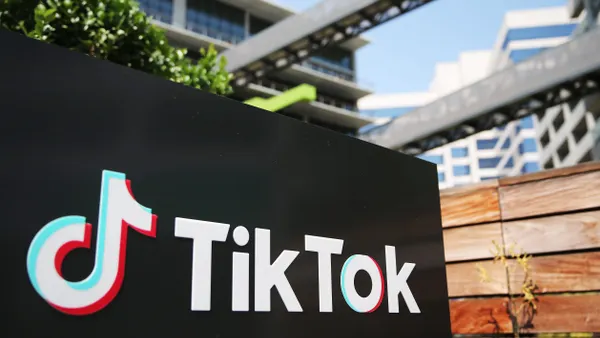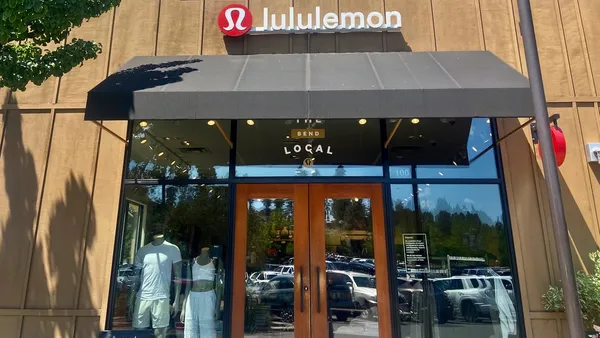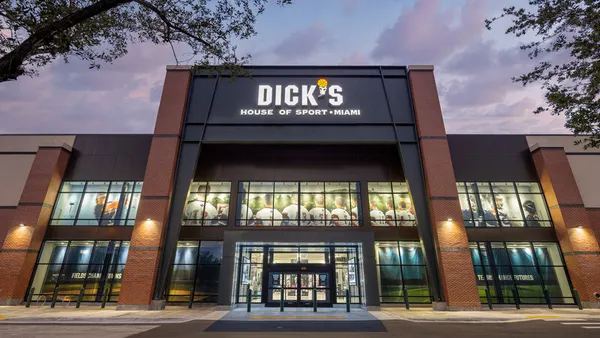Dive Brief:
- Online sales in the prestige beauty category dropped 14% year over year, according to a report by 1010data.
- The analytics firm found a “significant change in shopping patterns” including a drop in online spending at most retailers and across multiple prestige beauty categories. Even though online sales are currently declining, they are still up when compared to prior to the pandemic, per the report.
- Macy’s and Target saw the largest share gain of beauty merchants in e-commerce sales over the past year.
Dive Insight:
Beauty shoppers are starting to return to physical stores.
Retailers are seeing an overall uptick in beauty as a category. But, while online beauty sales were up 51% between 2019 and 2020, shoppers are currently opting to buy makeup in person rather than ordering online.
“While our data registers a drop in online sales, the overall positive increase in year-over-year earnings stated by retailers in their earnings reports, suggests a movement back to shopping in stores, at least when it comes to this high-touch category,” Jonah Ellin, chief product officer at 1010data, said in a statement.
The ability to do better color matching and testing in a physical store plays a role in changing consumer behavior. “Most makeup users prefer to shop in a way that allows them to experience the actual product, versus seeing [it] pictured on a screen,” the report said. Product categories that are better seen in a store, therefore, are performing worse online.
Leaders in beauty are also shifting, with Macy’s and Target ticking up in popularity. Macy’s is believed to be taking market share from Sephora and Nordstrom’s online channels, by showing growth with products like fragrance, sun care and hair appliances. Target is seeing increases in eye, lip, nail makeup and body care product sales, among others.
The category shift is happening while a number of retailers are accelerating their in-store beauty offerings. Kohl’s partnered with Sephora, and in the 200 stores with a Sephora shop the department store saw more traffic and a mid-single digit sales lift compared to the rest of the chain. Target’s partnership with Ulta remains a key part of the beauty retailer’s growth strategy, and Target, for its part, continues to add beauty brands to its lineup. Even Best Buy is expanding its in-store assortment of beauty products.
“One key to success in 2022 and beyond will be for retailers to focus on their in-store presence and online education and marketing to meet their customers where they want to be,” Ellin said.














